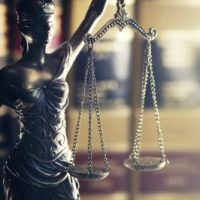When Can A Lawyer Ask A Juror Questions In Trial?

You don’t always get a right to a jury in every case, especially in business cases where contracts can often limit our right to a jury. In some cases, such as with arbitration, you may not even get to be before a judge or even in a courthouse. But when we do get before a jury to have our case heard, we assume that the jury is fair, impartial, and is considering all the evidence that is being presented before them.
How Fair is the Jury?
But how do we really know that the jury is being impartial? How do we know that they have considered all the evidence or that they have even understood all of it?
The answer to that question requires either that we read the minds of the jury—an impossibility—or that we ask them questions after the case about how they came to their conclusions and what evidence they considered or didn’t consider.
But while questioning jurors is an easy solution, it also jeopardizes the integrity of the jury system. We want jurors to be free to voice their opinions in the jury room during deliberations, and that may be impeded if a juror knows that they are going to be questioned later on about how he or she voted.
When Questions Can be Asked
Not only are parties to a lawsuit limited in their ability to see what a juror was thinking, but a party can’t even ask a particular juror how they voted. It doesn’t matter that a juror looked like they were sleeping or looking like they “hated you” or simply looked disinterested in the entire case. None of that justifies being able to question a jury.
There is one situation where a juror can be questioned about what they considered in trial when the case is over: When there is something that the juror may have been dishonest about in voir dire (pre-trial jury questioning). For example, if a juror says that he has no relationships to any police officers, and later Juror A mentioned that juror B’s uncle is a police officer, that may raise the possibility of dishonesty, giving parties the right to question the juror.
This is especially true when, had the juror been honest in answering pre-trial questions, a lawyer would have stricken the juror from the pane.
Another situation may be when a juror has a relationship with one of the parties to the lawsuit, or to one of the lawyers, or to the judge.
Prejudice and Bias
Any indication that a juror may be prejudiced can also subject the juror to being questioned, such as when a juror tells an “off the cuff” racist “joke,” raising questions about the juror’s impartiality.
Call the West Palm Beach business litigation attorneys at Pike & Lustig today for help with your business law trial.
Resource:
floridabar.org/public/consumer/pamphlet016/
